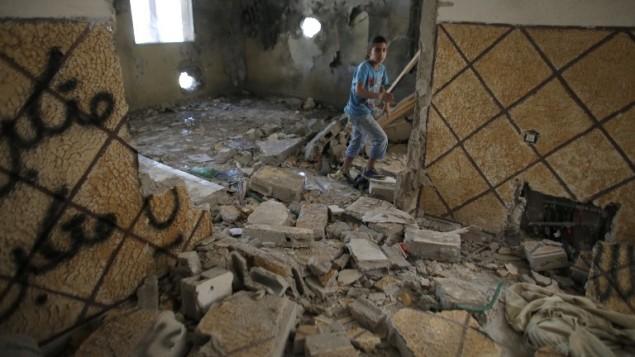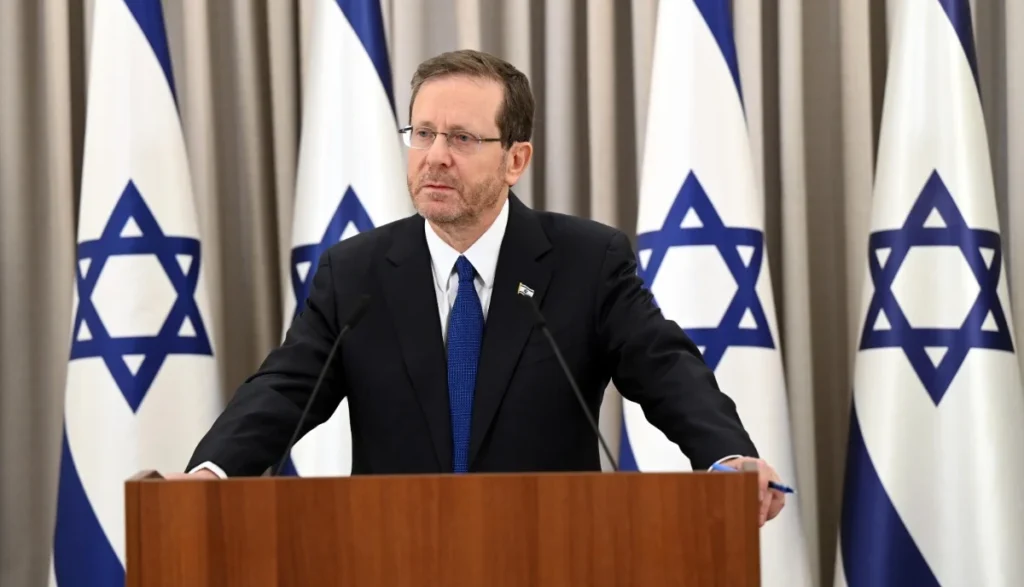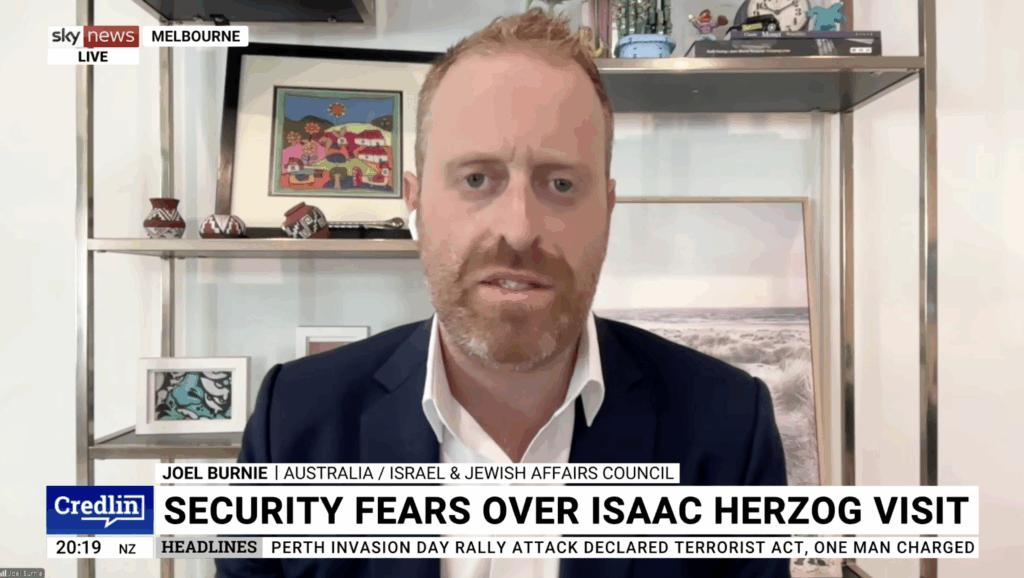UPDATES
Revival of demolitions as terror deterrent sparks Israeli debate
November 25, 2014 | Ahron Shapiro

The Israeli government’s decision to demolish the homes of terrorists involved in the recent spate of terror attacks has been strongly criticised in the media.
Opinion on the policy is sharply divided in Israel, and it’s true – as many journalists including the Australian Financial Review’s Tony Walker here in Australia have noted – that in 2005, then-Chief of Staff (today Defence Minister) Moshe Ya’alon advised then-Defence Minister Shaul Mofaz to end the practice, after a committee established to evaluate the practice concluded that, in the words of Jerusalem Post reporter Margot Dudkevitch it “failed to serve as a deterrent.”
However, what most international journalists, including Walker, have failed to mention is that the report was not terribly conclusive. The committee actually did find that it worked in some cases – though it was believed its effectiveness was cancelled out by the resentment the policy spawned among other Palestinians.
This was reflected in a statement issued by the IDF Spokesperson at the time that warned that “in the event of an extreme change in circumstances, the army would be free to reevaluate the policy” – suggesting that, like a tourniquet, the IDF believed it might have value as an emergency, temporary measure, especially against unplanned acts of terrorism.
As Dudkevitch wrote:
“An IDF official said that while the practice had a deterrent effect in some cases, ‘the IDF weighed whether the deterrent was strong enough to justify its continuation. And the chief of General Staff concluded that, especially when [the situation] is quiet, it’s not time to use this policy.'”
In a story that appeared in the print edition of the Sydney Morning Herald on November 21, the New York Times’ Jodi Rudoren presented a more nuanced and accurate picture of the uncertainty and ambivalence surrounding the policy in the Israeli government and security establishment.
“After halting the widespread practice of destroying homes in 2005, when a commission found that it rarely worked as a deterrent and instead inflamed hostility, Israel this northern summer also sealed or destroyed the homes of four Palestinians who had killed Jews, having previously done the same to two in 2009.”
Unfortunately the SMH edited out from the NYT story a key quote from Israeli Prime Minister Benjamin Netanyahu’s Spokesperson Mark Regev. In the quote, Regev highlighted the impact of incitement and glorification of terror by the Palestinian leadership and the various financial and other incentives that encourage Palestinians to engage in terrorism.
Regev said:
“There is a culture of support within Palestinian society – these people are put up on a pedestal, they become martyrs, they become heroes, they are praised by the Palestinian leadership, their families are embraced, there are also very practical benefits for the family vis-a-vis financial support. In many ways, an action against the house is evening of the playing field. One is saying that by committing a heinous crime, in this case by murdering a baby, there will be a price to be paid.”
The return of the policy comes at the recommendation of the Shin Bet over that of the IDF, according to reports by Israel Hayom’s Nadav Shragai and Ynet’s Nahum Barnea.
As Barnea explained:
“There is a dispute over the effectiveness of home demolitions: The Shin Bet says it has a deterring effect, while the IDF says it doesn’t and could even achieve the opposite goal – sowing the seeds to the next attack. Each side presents data affirming its opinion, and there is no one to decide.”
Moreover, housing demolitions have also been viewed as a method to offset the financial incentives provided to those who commit acts of terror, as Adam Chandler discussed in the Atlantic:
“While the policy is meant to have a psychological effect for a would-be attacker whose family would be left homeless, some suggest house demolitions are also designed to offset the economic benefits of committing an attack. One example: During the first three years of the Second Intifada, the families of Palestinian suicide bombers, as well as the families of those killed in clashes with Israel, routinely received checks for up to $25,000 from former Iraqi dictator Saddam Hussein.
Hussein may be gone, but the financial incentives for Palestinian attackers who are jailed or killed are still around. Back in June, when Israel first announced it would resume house demolitions after three Israeli teenagers were kidnapped and killed, an Israeli official told the Jerusalem Post:
‘On the Palestinian side you have a whole package of incentives to carry out terrorist attacks, such as if we arrest the terrorist, their families get a generous allowance from the PA.'”
The Netanyahu government has decided to stand by the policy, for now. The Israeli Foreign Ministry issued a backgrounder on the policy on November 19, denying it was a punitive action.
“The demolition of residences is not used as a punitive action. Rather, demolition is an act of deterrence, designed to discourage other terrorists and thereby minimize the number of future terrorist attacks. This measure is also undertaken in accordance with the rule of military necessity, so as to prevent terrorists from returning to their property and using it for further terrorist activities.”
The briefing also explored the legality of the policy, and the safeguards and recourse available to those who would be affected by the policy.
“The demolition of a terrorist’s house is a lawful administrative measure. However, Israel is aware of the serious potential effects of demolitions and therefore endeavors to minimize the use of this measure to the extent possible. Consequently, demolitions are carried out only in the most extreme circumstances.
The measure is only employed after high-ranking officials in the Ministry of Justice, security forces and the government approve its use. Moreover, as in all administrative measures, demolitions are conducted in accordance with the principles and rules of due process. Among the safeguards in place is the right of any person who might be potentially affected by the demolition to appeal directly to Israel’s Supreme Court. The Supreme Court, sitting as a High Court of Justice, exercises full judicial review over demolitions.”
Netanyahu has also stressed the intention of the demolition policy to be a deterrent, in conjunction with other steps, like stripping east Jerusalem terrorists of benefits that come with their permanent residency.
As Netanyahu said at the opening of the weekly cabinet meeting on Sunday:
“Over the weekend I instructed Cabinet Secretary Avichai Mendelbit, along with Interior Minister Gilad Erdan, to submit draft legislation to revoke rights from residents who participate in terrorism or incitement against the State of Israel. It cannot be that those who attack Israeli citizens and call for the elimination of the State of Israel will enjoy rights such as National Insurance, and their family members as well, who support them. This law is important in order to exact a price from those who engage in attacks and incitement, including the throwing of stones and firebombs, and it complements the demolition of terrorists’ homes, and helps to create deterrence vis-à-vis those who engage in attacks and incitement.”
Commentary and analysis in the Israeli media has been lively and varied.
On the English-language radio station TLV1, Hilit Barel from the Council for Peace and Security and a former member of the National Security Council and Prof. Eugene Kontorovich, an international law expert from Northwestern University and senior fellow at the Kohelet Forum in Jerusalem, discussed the issue.
Ha’aretz predictably came out strongly against the return of a policy of demolitions, in an article that termed them “immoral” and “ineffective”, yet even its journalist Asher Schechter could not claim to know for certain just how ineffective it ultimately is.
Schechter hedged:
“One can claim, of course, that by demolishing homes Israel is in fact preventing many more terrorist attacks that would have taken place if it weren’t for this deterrent. It’s a legitimate claim. But by the same token, one also has to accept that it might have also provoked a few.”
Schechter also pointed out – as only a handful of global journalists have done – that the origins of the policy aren’t Israeli at all, rather they were first used by the British against militant Jews and Arabs during the Mandate period.
Ynet published an article by Israeli author Smadar Shir and columnist Merav Betito, with Shir supporting the measure and Betito arguing against.
Finally, also, at Ynet, columnist Rafael Castro argued that by authorising the demolishing of homes of terrorists from east Jerusalem, the government is actually weakening its claim over a united city of Jerusalem. Castro noted that the government did not demolish the homes of Jewish terrorists arrested several months ago for the revenge killing of an Arab teen from east Jerusalem, nor, he wrote, would they ever consider demolishing the home of an Israeli Arab from anywhere else in Israel regardless of their crime.
Most experts believe that the policy will be short-lived, one way or the other. Either calm will return, in which case there won’t be any need to demolish terrorists’ homes, or if it does not appear to have a significant effect on reducing attacks, it will be rescinded as ineffective.
Ahron Shapiro
Tags: Israel





